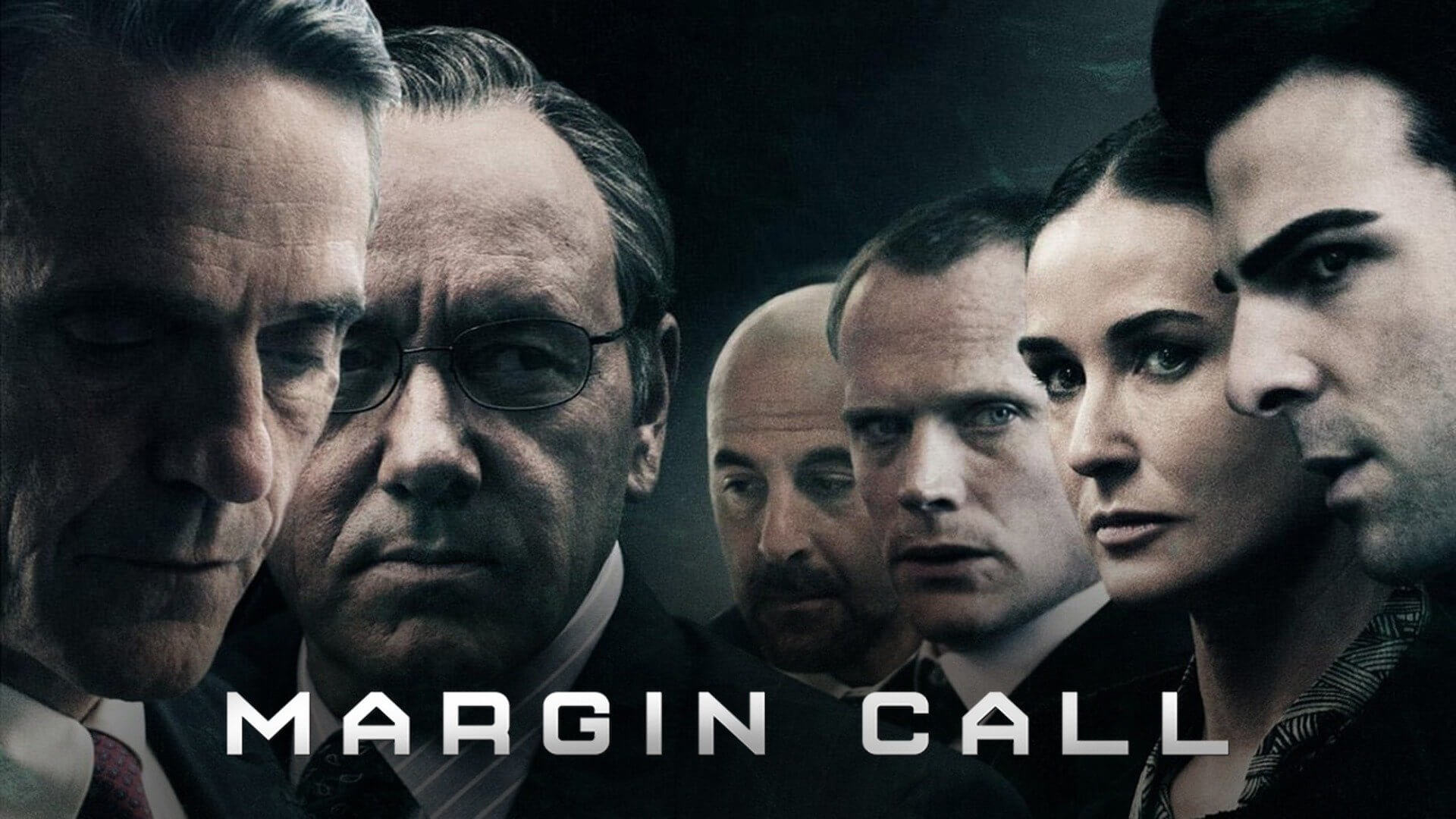
Margin Call is a gripping and thought-provoking movie that delves deep into the complex world of high finance and the devastating consequences of greed. Released in 2011, the film was written and directed by J.C. Chandor and boasts an impressive ensemble cast including Kevin Spacey, Paul Bettany, Jeremy Irons, and Stanley Tucci.
Set against the backdrop of the 2008 financial crisis, Margin Call takes place over a 24-hour period at an investment bank. The story unfolds as an economic disaster looms, and the employees are faced with the moral dilemma of saving themselves or exposing the fraudulent practices that have led to the impending collapse.
This article will delve into 49 fascinating facts about Margin Call, providing behind-the-scenes insights, trivia, and analysis that will deepen your appreciation for this critically acclaimed film.
Key Takeaways:
- “Margin Call” is a thrilling movie that explores the 2008 financial crisis, highlighting the ethical dilemmas and human impact of investment banking. It prompts viewers to question the ethics of the financial system.
- The film’s all-star cast, intelligent script, and thought-provoking exploration of the financial industry earned critical acclaim. It serves as a cautionary tale about the dangers of unchecked risk-taking and the need for transparency and accountability.
Margin Call was released in 2011.
Directed by J.C. Chandor, this gripping financial thriller delves into the high-stakes world of investment banking.
The film stars an all-star cast.
Margin Call features performances from Kevin Spacey, Paul Bettany, Jeremy Irons, Zachary Quinto, and other talented actors.
It explores the 2008 financial crisis.
Margin Call takes place over a 24-hour period during the early stages of the financial meltdown.
The screenplay was written by J.C. Chandor.
Chandor’s meticulous research and writing earned him an Academy Award nomination for Best Original Screenplay.
The film received critical acclaim.
Margin Call was praised for its intelligent script, powerful performances, and thought-provoking exploration of the financial industry.
It won the Independent Spirit Award for Best First Feature.
The film’s exceptional debut earned it recognition at the Independent Spirit Awards.
Margin Call has a runtime of 107 minutes.
The movie effectively captures the intensity and urgency of the situation within a relatively short timeframe.
The story follows key players in a Wall Street investment firm.
Through their perspective, the film exposes the unethical practices and moral dilemmas prevalent in the financial industry.
Margin Call explores the concept of moral responsibility.
The characters grapple with their choices and the repercussions of their actions during the unfolding crisis.
The film’s title refers to the practice of making margin calls.
This financial term relates to demanding additional funds from investors to cover potential losses.
Margin Call highlights the human impact of financial decisions.
It portrays the toll taken on employees who are faced with the consequences of their employers’ actions.
The movie provides an insider’s view of the financial world.
Margin Call offers a glimpse into the high-pressure environment and cutthroat nature of the investment banking industry.
It emphasizes the conflicts of interest within the market.
The characters struggle with balancing their personal ambitions with the well-being of their clients and society at large.
Margin Call is a thought-provoking cautionary tale.
The film prompts viewers to question the ethics and sustainability of the financial system.
J.C. Chandor’s direction keeps the tension high throughout the film.
His skillful storytelling and attention to detail enhance the suspenseful atmosphere.
The film’s production budget was $3.5 million.
Despite its modest budget, Margin Call delivers a highly impactful and engaging narrative.
Margin Call was inspired by real events.
It draws on the collapse of Lehman Brothers and the subsequent financial crisis that rocked the global economy.
The film offers a glimpse into the inner workings of Wall Street.
It reveals the complex and often opaque world of investment banks and their risk management strategies.
Margin Call raises questions about the role of regulators.
It examines whether the government and regulatory bodies effectively oversee and prevent financial disasters.
The film’s cinematography captures the sterile atmosphere of financial institutions.
The cold and clinical visual style adds to the overall mood of the story.
Margin Call’s score was composed by Nathan Larson.
The haunting and atmospheric music complements the film’s tone and enhances the viewing experience.
The movie merges drama and thriller genres.
It keeps the audience on the edge of their seats with its intense plot and unexpected twists.
Margin Call features strong character development.
The complex and multi-dimensional characters make the story emotionally resonant.
The script is filled with sharp and realistic dialogue.
The actors deliver the well-crafted lines with conviction, further immersing the audience in the narrative.
Margin Call received an Academy Award nomination for Best Original Screenplay.
The film’s intelligent and thought-provoking script garnered critical acclaim and industry recognition.
It showcases the impact of greed on the financial industry.
Margin Call reflects on the dangerous consequences of prioritizing profit over ethical considerations.
The film presents a sobering portrayal of the financial system’s flaws.
It raises awareness about the need for transparency, accountability, and ethical decision-making in the industry.
Margin Call serves as a cautionary tale about the dangers of unchecked risk-taking.
It exposes the potential for catastrophic consequences when institutions prioritize short-term gains over long-term stability.
The movie explores the interplay between personal ambition and morality.
The characters’ motivations and choices are driven by their desires for success, wealth, and power.
Margin Call highlights the interconnectedness of the global financial system.
It demonstrates how the actions of a few can trigger far-reaching consequences for economies and ordinary people.
The film’s dialogue is filled with financial jargon.
While it may be unfamiliar to some viewers, it adds authenticity to the story and reinforces the characters’ expertise.
Margin Call was a commercial success.
Despite its niche subject matter, the film found a wide audience and garnered positive word-of-mouth.
The movie’s tight editing enhances the suspenseful pacing.
The precise cuts and seamless transitions keep the audience engaged from start to finish.
Margin Call sheds light on the pressures faced by employees working in high-stress environments.
It offers a glimpse into the personal sacrifices and emotional toll of working in cutthroat industries.
The film has a documentary-style feel.
Its realistic approach and attention to detail make the events and characters feel authentic.
Margin Call serves as a critique of the profit-driven culture in the financial sector.
It questions the ethics and values that underpin the industry’s practices.
The movie reveals the vulnerabilities in the financial system.
It exposes the potential for systemic failures and the risks posed by unchecked speculation and leverage.
Margin Call’s ending leaves the audience with a sense of unease and uncertainty.
The unresolved outcomes reflect the ongoing nature of the issues explored in the film.
The film’s production design accurately recreates the atmosphere of Wall Street offices.
The meticulous attention to detail adds to the film’s authenticity and immersive experience.
Margin Call’s cast delivers exceptional performances.
The talented ensemble brings depth and nuance to their respective characters, making them relatable and compelling.
The movie received widespread critical acclaim.
Reviewers commended its intelligent writing, superb acting, and thought-provoking exploration of the financial crisis.
Margin Call is a dialogue-driven film.
The discussions and debates between characters provide insights into their motivations and the larger themes of the story.
The film’s pacing keeps the audience engaged.
While it deals with complex financial concepts, Margin Call maintains a balance of intrigue and accessibility.
Margin Call’s success led to the recognition of J.C. Chandor as a talented director.
He went on to direct other acclaimed films such as “All Is Lost” and “A Most Violent Year.
The movie reflects the interconnectedness of the global economy.
It highlights how the actions of financial institutions in one country can have ripple effects across the world.
Margin Call’s script underwent extensive research and development.
The filmmakers sought to accurately portray the events and intricacies of the financial crisis.
The film’s release coincided with ongoing public scrutiny of Wall Street.
Margin Call resonated with audiences at a time when the repercussions of the financial crisis were still being felt.
Margin Call serves as a reminder of the need for transparency and accountability in the financial industry.
It raises questions about the safeguards in place to prevent future crises and protect investors and the general public.
The movie prompts viewers to critically examine the ethics of the financial system.
It encourages discussions about the balance between profitability and responsibility in the pursuit of financial success.
Conclusion
In conclusion, “Margin Call” is not only a gripping thriller set in the high-stakes world of investment banking, but it also provides a thought-provoking commentary on the financial crisis of 2008. The film paints a realistic and fascinating picture of the inner workings of a Wall Street firm facing imminent collapse and the ethical dilemmas that arise.With its stellar cast, including Kevin Spacey, Paul Bettany, and Jeremy Irons, “Margin Call” delivers powerful performances that bring the complex characters to life. The screenplay, written and directed by J.C. Chandor, is sharp and intellectually stimulating, making the audience question the morality of the characters’ actions.Overall, “Margin Call” offers an engaging storyline, well-developed characters, and an insightful exploration of the moral implications of the financial world. It is definitely a must-watch for both movie enthusiasts and individuals interested in understanding the factors that contributed to the global financial crisis.
FAQs
Q: Is “Margin Call” based on a true story?
A: While “Margin Call” is a fictional film, it is heavily inspired by the events leading up to the 2008 financial crisis. Many of the situations and decisions depicted in the movie are reflective of real-life occurrences during that time.
Q: What is the significance of the movie’s title?
A: The term “margin call” refers to a demand by a lender for an investor to deposit additional funds to cover potential losses in a margin account. In the movie, the title symbolizes the critical point where the characters must make tough choices to prevent their company from collapsing.
Q: What sets “Margin Call” apart from other movies about the financial industry?
A: “Margin Call” stands out for its in-depth exploration of the moral dilemmas faced by the characters as they grapple with the consequences of their actions. It goes beyond the typical portrayal of greed and highlights the complex ethical challenges that arise in the high-pressure environment of investment banking.
Q: Can I watch “Margin Call” if I don’t have a background in finance?
A: Absolutely! While the movie delves into financial jargon and the intricacies of the industry, it is primarily a human drama that focuses on the characters and their decisions. Even viewers without extensive knowledge of finance can enjoy the film for its compelling narrative and powerful performances.
Q: Are there any particular themes or messages in “Margin Call”?
A: “Margin Call” tackles various themes, including corporate greed, moral ambiguity, and the consequences of unchecked ambition. The film raises questions about the ethical values of the financial industry and the impact of decisions made by powerful individuals on a global scale.
If you enjoyed learning about Margin Call, why not explore more fascinating facts about other financial-themed movies, natural disasters, and stock market trivia? Discover the gripping story behind the classic film Wall Street, which showcases the cutthroat world of high finance. For those interested in understanding how businesses prepare for unexpected events, our article on risk management and natural disasters provides valuable insights. And if you're curious about the inner workings of the stock market, don't miss our collection of entertaining facts that will keep you engaged and informed.
Was this page helpful?
Our commitment to delivering trustworthy and engaging content is at the heart of what we do. Each fact on our site is contributed by real users like you, bringing a wealth of diverse insights and information. To ensure the highest standards of accuracy and reliability, our dedicated editors meticulously review each submission. This process guarantees that the facts we share are not only fascinating but also credible. Trust in our commitment to quality and authenticity as you explore and learn with us.


